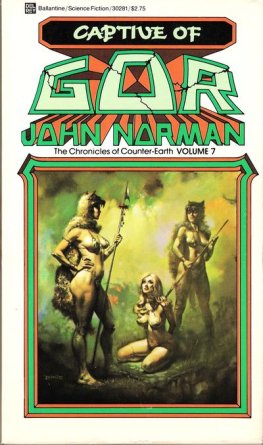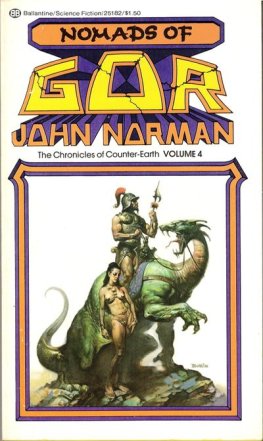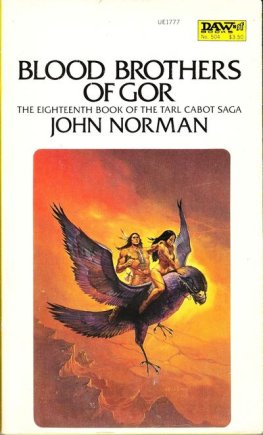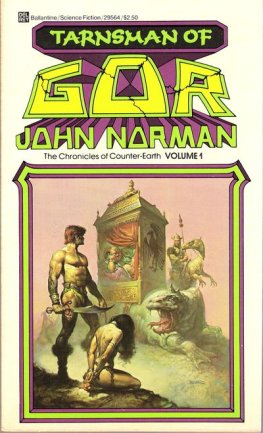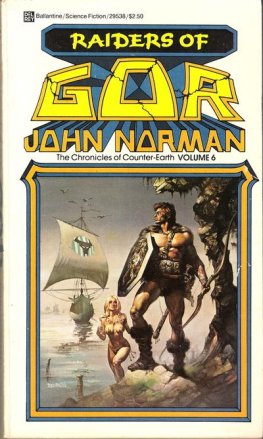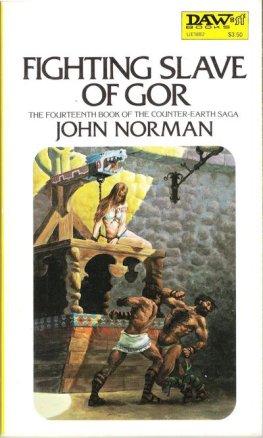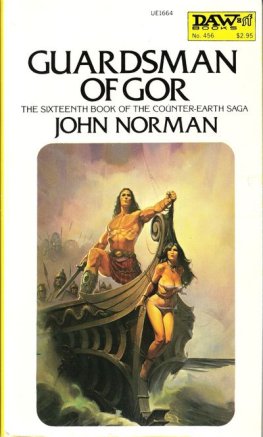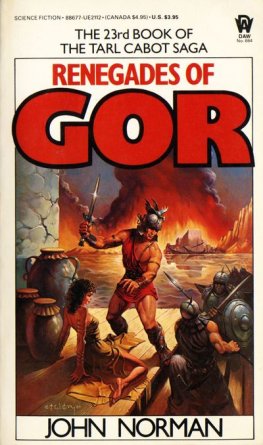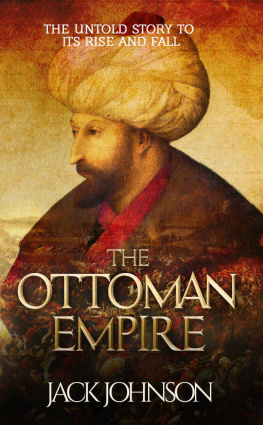Notes, in the Manner of a Preface
The sky was dark with the coming of ships.
The Annals.
It is difficult in our enlightened era to understand the dark and troubled times. How terrible they were, how fearful to live then! How fortunate that they are past! And yet, then, one suspects, men, and women, were alive, as they are not now. Perhaps something was lost with their passing. But one should not speak such thoughts. Indeed, one should not even think them, lest they be inadvertently spoken. Have not many been sentenced, for words spoken in sleep, monitored by the electronic listeners?
What is one to make of the thousand sciences, of the thousand worlds?
The ant has his world, the vi-cat his, and we ours.
Some believe that time is the creature of clocks; yet it seems there was a time before clocks; if clocks stopped, might they not have stopped for a coding or less; some believe that length is the child of marked sticks; yet it seems that a length lay in wait, so patiently, for the stick. It is fortunate we have discovered the end of space. We are informed, and wise. One wonders what lies beyond that end, and where our space might be. Some say the world had a beginning, but how could it begin? Would it just appear? Were things not lonely then, so empty, nothingness, without even space? A universe contained in a spoonful of energy? And whence that spoonful of energy? How wide and deep that spoon? Was it far from here? Perhaps there are tides in worlds, as universes breathe, expanding and contracting.
We are fortunate to live in a quiet, stable, equable world. Science has sounded our world, and tamed it, made it fit for habitation, by such as we. We graze peacefully. How grateful we must be. Our science is one of the thousand sciences. How fortunate we are that it is the one truth, as we are told. What, I wonder, do the thousand false sciences tell their populations, or herds. Do they proclaim their falsity boldly? Perhaps not.
Surely the world is a mysterious place, this world, and perhaps others. One puzzles on the dark selections of nature. Would it select equivalently on a heavy world, and a light world, on a hot world, and a cold world, on a dry, barren world and on an aqueous world? One supposes not. On one world a termite prospers, on another a wolf. In the dark and troubled times who would prosper? I think men and women were not then as they are now. In our world what place would there be for such men and women, or, in their world, what place would there be for such as we? Might not they turn their back on our world? Might we have survived in theirs? Perhaps, if we became as they, those who could. One wonders if one could become as they, impatient, alert, agile-sinewed, far-trekking, keen-sighted, enduring, wary, sustaining hunger, and heat and cold, hardy, ready to hunt, and be hunted, ready to kill or be killed. They were the dark and troubled times, times in which life was noticed, not overlooked, times of threat, difference, and risk, times in which life was simpler and more raw, times in which life was perilous, but lived.
I am different from many others; I am much alone, with my studies, and my memories of lives I never lived, or do not think I lived. I frequent ruins, and old buildings. I am found in obscure libraries, I peruse crumbling manuscripts, not seen fit for preservation. I am one with chroniclers I have never known. I sift through their accounts, often so laconic. This manuscript, following, is based largely on the Valens manuscript, 122B, details concerning which I have supplied elsewhere. It is unusual amongst such manuscripts as it deals largely with individuals, and not institutions, federations, and states. I effect nothing critical on this score. Is it not one way to understand a time, seeing it as those saw it, whose time it was?
As our story begins, the wings of the Telnarian empire spread over thousands of worlds. The empire was eternal, and, I fear, dying.
I think there is a particular reason I have attended to these supposedly antique matters, and it has to do with the mysteries and intricacies of time, and the interlacings of dimensions. Sciences, here and there, doubtless the false sciences, as we are told, have supposed a multiplicity of worlds and dimensions, suggesting that reality is less prosaic and constricted than commonly supposed by small animals such as we, bred not to understand but, in the midst of dark sanctions, to survive. Are we, whom it took millennia to discover the stone club, the planted seed, and the bronze knife, ready to understand the possible births and divisions of worlds?
I wondered, long ago, if Telnaria might not lie at our elbow. How is it, for example, that certain troves of manuscripts lay so long, not merely neglected, but, apparently, undiscovered? Is it possible that they were not there, until recently, in the historical past? But surely that is absurd. But one wonders. As I once mentioned, long ago, when I was very young, once, for the briefest instant, while wandering amongst ruins, my sleeve brushed a column, but it was not worn with age, weathered by centuries of wind and rain, sheeted with moss, blackened and scarred by lightning, but fresh and golden, lofty and deeply carved, and then it was gone. But I had glimpsed Telnaria.
Our story continues, at the edge of a forest on the world of Tangara, at a small camp far from the provincial capital of Venitzia.
It is the month of Igon, a month of bitter cold in the northern latitudes of Tangara.
It is dusk.
Prepare yourself, Cornhair! snapped the brunette, who was first girl, and carried a switch.
Filene! said the blonde.
Why Filene? said the brunette.
It is my name! said the blonde.
Why is it your name? laughed the brunette.
The blonde was silent.
Speak, said the brunette, or my switch will play a merry melody on your silken hide, and, as you are, you will feel it, and keenly!
Because it is the name Masters have given me! said the blonde, tears in her eyes. Almost without thinking, she lifted her hand to her throat. She wore, as did the brunette, a Telnarian slave necklace, of the sort favored in some of the provinces. It was all she wore.
Kneel, Cornhair, said the brunette.
The blonde knelt. Instant obedience is expected in a slave, to any free person, and even to another slave, if possessed of authority over her.
The blonde touched the light, small chain locked about her neck, with its pendant metal disk. The disk, in three languages, including a Herul pictograph, identified her as a property of the Telnarian empire, to be returned, if found, to the office of the provincial governor, in Venitzia. In her transportation to the camp, her naked body bundled in a thick fur sack and hood, the chain had been housed in a soft, leather sleeve, which is not uncommon in the cold, or in a situation where the slave might be exposed to cold. Indoors, or in warmer areas, sleeves are removed from such necklaces. The reason for this is simple. Men like to see the chain on a slaves neck. Metal against female flesh is sexually stimulating. It is even more so when it is understood that the woman is a slave, and the device is, in effect, a slave collar, which she cannot remove. It does not take long for an enslaved woman to gather that she is now, is expected to be, and must be, a stimulating sexual object.
You look well on your knees, Cornhair, said the brunette, as any slave.
The blonde and the brunette were in a rearward portion of a long tent, one of four at the camp, inside the defense perimeter. These four tents were designed for imperial occupants, even of rank; accordingly, they were floored, insulated, and heated. They were small oases of comfort in the wilderness outside Venitzia, even in the month of Igon, even at the edge of a forest, into which not even Heruls would penetrate, a forest rumored to be roamed by Otungs.


